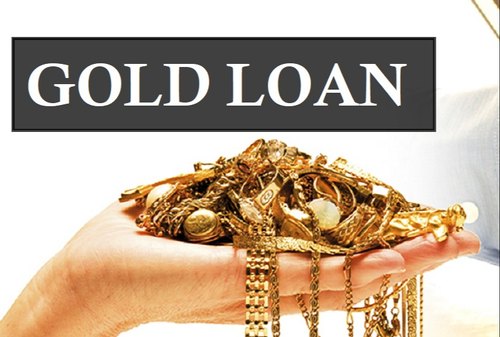Per recent reports, Indian households collectively possess over 18000 metric tons of gold. Millions of Indians are using the otherwise idle lying gold to raise funds to ward off a financial crisis. No, they are not selling their valued inheritance but simply pledging it for a loan.
If you too have some financial emergency to cater to and some spare gold to pledge, an instant gold loan makes perfect sense. Here’s what you need to know to make informed decisions.

What is an instant gold loan?
Instant Gold loan is exactly what it means, fetching a loan against gold in a single visit to the lender. It’s a typical unsecured loan. Here, your gold will be the collateral against which the loan is sanctioned. You hand over your gold to the lender and claim it back once the loan is fully repaid in monthly installments. The lenders accept gold in any form, jewelry, coins, and bars, provided it is 18 karat or purer. An instant gold loan is just like a traditional gold loan but with fewer hassles and quicker approvals. It’s probably the easiest and quickest way to raise funds.
Who offers it?
Pledging gold for money has been the norm across ages. Currently, the gold loan market is growing at 13.7% annually. Every institutionalized lender, including private and public sector banks and Non-Banking Financial Companies (NBFCs), is vying for their share of the gold loan pie. NBFCs fare well against banks when it comes to gold finance. Here’s why.
- NBFCs provide more flexibility in repayments. You are free to repay the interest component in EMIs while the principle can be repaid in one lump sum at tenure end.
- Banks usually charge a pre-payment penalty while NBFCs don’t.
- The approvals and disbursals are seamless and quicker with NBFCs vis-à-vis banks.
- NBFCs are more mindful of your specific needs and hence, provide tailored options.
Who can get it?
An instant gold loan is perhaps the easiest loaning option out there. That’s because the money is borrowed against the security of gold. Still, you need to fulfill certain eligibility criteria.
You should be:
- An Indian citizen
- Self-employed or salaried
- Having a stable monthly income
- Aged 18 or above at the time of applying
- Not over 65 years old when the loan term expires
The lender won’t even consider your credit history before sanctioning the loan against gold. That means people with unsatisfactory credit history can raise funds easily and quickly.
What’s the paperwork?
Instant gold finance involves negligible paperwork. You need to put together:
- Address Proof: Ration card, Passport, Aadhaar Card, Utility bill
- ID proof: PAN Card, Aadhaar Card, Passport, Voter Id Card
- Income proof: Previous two years’ ITR, 6 months Bank statements
NBFCs like Muthoot Fincorp offer complete assistance with paperwork. Your documents will be collected from your premises by a professional to further your experience.
What’s the LTV?
LTV stands for the Loan to Value. It’s the loan amount you get in lieu of the pledged gold. The LTV is risk-specific. The higher the risk, the lower the LTV will be, and vice-versa. The LTV in an instant gold loan is usually up to 75%. However, LTV varies on several factors.
- The purer the gold, the higher the LTV is. The 22 karat gold attracts higher LTV than 18 karat.
- Gold bars and coins give you a better LTV as compared to gold jewellery.
How much is the cost of borrowing?
The cost of borrowing depends on multiple factors. The most important one is the interest rate, followed by processing fees, valuation fees, prepayment charges, and other penalties. Instant gold finance incurs 13% to 16% interest rates per annum and 1% of the loan as processing fees. The other expenses are variable from one lender to the other.
What’s the tenor?
The instant gold loan is a tailor-made borrowing option for the short term. The tenor ranges from a month to 3 years, subject to the lender. You are required to repay the loan amount plus the interest in EMIs. You can negotiate with the lender to hike the tenor if need be.
What happens if the loan is not repaid?
In the case of non-payment, the lender can put your gold on the market to recover the money. That’s typical of a secured loan. The situation might never arise for a responsible borrower.
